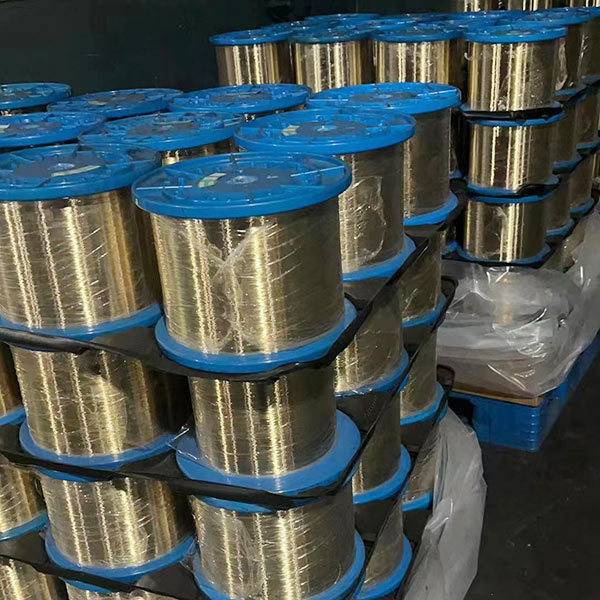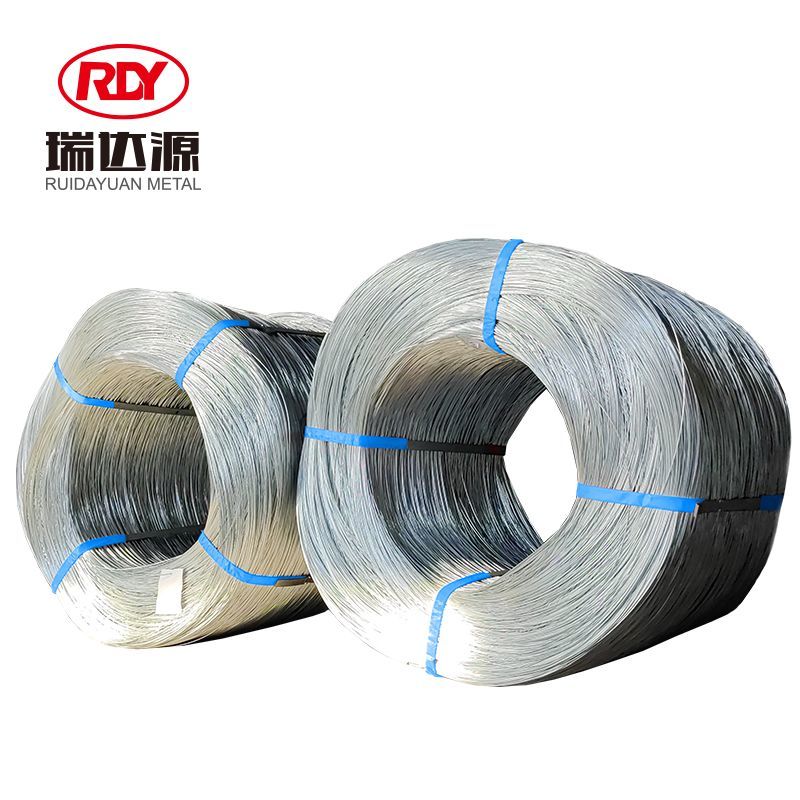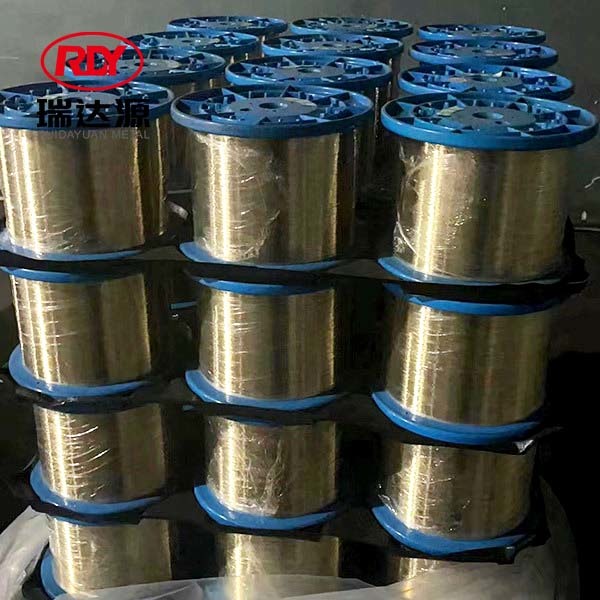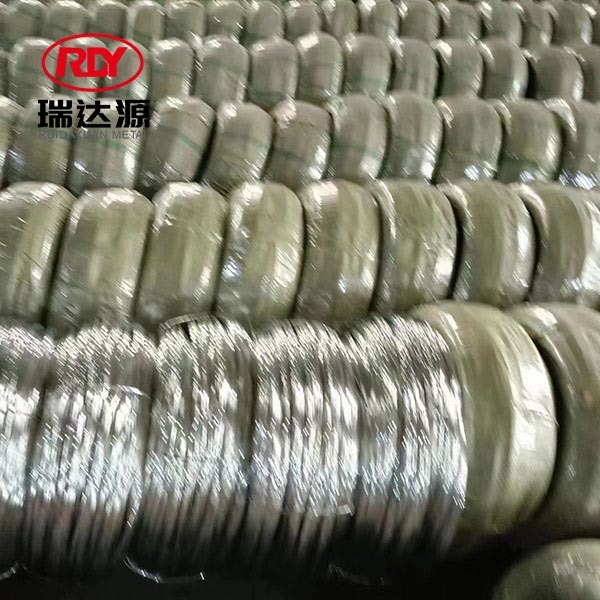Why Copper Coated Wire Is the Superior Choice for Electrical Wiring Projects
Release Time:
Sep 19,2025
Why Copper Coated Wire Is the Superior Choice for Electrical Wiring Projects Table of Contents Introduction to Copper Coated Wire Understanding Electrical Wiring: An Overview Advantages of Copper Coated Wire Comparative Analysis: Copper Coated vs. Traditional Wires Applications of Copper Coated Wire in Various Industries The Manufacturing Process of Copper Coated Wire

Why Copper Coated Wire Is the Superior Choice for Electrical Wiring Projects
Table of Contents
- Introduction to Copper Coated Wire
- Understanding Electrical Wiring: An Overview
- Advantages of Copper Coated Wire
- Comparative Analysis: Copper Coated vs. Traditional Wires
- Applications of Copper Coated Wire in Various Industries
- The Manufacturing Process of Copper Coated Wire
- Maintenance and Care for Copper Coated Wire
- Environmental Impact of Using Copper Coated Wire
- Conclusion: The Future of Electrical Wiring with Copper Coated Wire
- Frequently Asked Questions
Introduction to Copper Coated Wire
Copper coated wire is rapidly gaining recognition among electricians and engineers for its **superior performance** in electrical wiring projects. This innovative material combines the excellent conductivity of copper with the benefits of a more resilient substrate, providing a cost-effective solution for various applications. In this article, we will delve deep into the reasons why copper coated wire stands out as the preferred choice for both professional and DIY electrical projects.
Understanding Electrical Wiring: An Overview
Before exploring the advantages of copper coated wire, it's essential to understand the fundamentals of electrical wiring. Electrical wiring involves the installation and maintenance of electrical circuits that power homes, businesses, and industrial facilities. Wiring is typically made from conductive materials that allow electricity to flow efficiently. Traditional wiring options include pure copper, aluminum, and other alloys, each with its strengths and weaknesses.
The Role of Conductivity in Electrical Wiring
**Conductivity** is a critical factor in electrical wiring, as it directly impacts the efficiency and safety of electrical systems. Copper is renowned for its high conductivity, making it a top choice for electrical applications. However, pure copper can be prone to environmental factors that cause corrosion and degradation over time.
Advantages of Copper Coated Wire
Copper coated wire offers several advantages that enhance its usability in electrical wiring projects:
1. Enhanced Conductivity
Copper coated wire features a thin layer of copper over a core material, such as steel or aluminum, which provides excellent electrical conductivity. This structure ensures that the wire can carry current efficiently without significant energy loss.
2. Increased Durability
The inner core of copper coated wire adds strength and resilience to the overall design. This durability makes it suitable for applications in harsh environments where traditional copper wiring may fail due to bending or environmental exposure.
3. Cost-Effectiveness
Using copper coated wire can significantly reduce costs compared to pure copper wire. The lower material cost, combined with its durability and longevity, makes it an economically viable option for large-scale electrical projects.
4. Resistance to Corrosion
Copper coated wire is less susceptible to corrosion than pure copper wire. The protective layer of copper shields the inner core from moisture and environmental factors that contribute to rust and degradation.
5. Lightweight and Flexible
Copper coated wire is often lighter than traditional wiring options, making it easier to handle and install. Its flexibility allows for easier routing through tight spaces, streamlining the installation process.
Comparative Analysis: Copper Coated vs. Traditional Wires
To truly understand the benefits of copper coated wire, it’s essential to compare it with traditional wiring options like pure copper and aluminum wires.
1. Copper Wire vs. Copper Coated Wire
While pure copper wire offers excellent conductivity, it is also more expensive and less durable. In contrast, copper coated wire provides a balance of conductivity and cost, making it more accessible for various projects.
2. Aluminum Wire vs. Copper Coated Wire
Although aluminum wire is lighter and generally cheaper, it has lower conductivity and higher resistance. Copper coated wire outperforms aluminum in terms of both conductivity and durability, making it a superior choice for electrical applications.
3. Performance in High-Temperature Environments
Copper coated wire is designed to withstand high temperatures better than traditional wires, reducing the risk of overheating and electrical failures. This resilience makes it ideal for use in industrial settings where temperature fluctuations are common.
Applications of Copper Coated Wire in Various Industries
The versatility of copper coated wire extends across various industries, making it a favored option for numerous applications.
1. Electrical Appliances
Copper coated wire is commonly used in **electrical appliances**, including motors, transformers, and generators, where reliable conductivity is critical.
2. Telecommunications
In the telecommunications industry, copper coated wire is utilized for signal transmission due to its minimal electrical resistance and high-frequency performance.
3. Automotive Industry
Automotive manufacturers are increasingly adopting copper coated wire for wiring harnesses, where weight reduction and durability are paramount.
4. Renewable Energy Systems
Copper coated wire plays a significant role in renewable energy systems, including solar panels and wind turbines, where efficiency and longevity are essential.
5. Home Wiring and Renovations
For residential projects, copper coated wire is an excellent choice for home wiring due to its balance of performance and cost, making it ideal for both new constructions and renovations.
The Manufacturing Process of Copper Coated Wire
Understanding the manufacturing process of copper coated wire can provide insights into its quality and performance. The process involves several key steps:
1. Core Material Selection
The first step involves selecting a suitable core material, often steel or aluminum, known for its strength and lightweight properties.
2. Coating Application
The core is then coated with a thin layer of copper through processes like electroplating or drawing. This coating ensures that the wire retains the high conductivity associated with copper.
3. Quality Control Measures
Throughout the manufacturing process, stringent quality control measures are implemented to ensure that the wire meets industry standards for conductivity, strength, and durability.
Maintenance and Care for Copper Coated Wire
Maintaining copper coated wire is straightforward, ensuring its longevity and reliability in electrical projects.
1. Regular Inspections
Conducting regular inspections of wiring installations can identify signs of wear or damage early, preventing potential electrical failures.
2. Proper Installation Practices
Using proper installation techniques, such as avoiding excessive bending or tension, can extend the life of copper coated wire.
3. Cleaning and Protection
Keeping the wire clean and free from contaminants can help maintain its conductivity and overall performance.
Environmental Impact of Using Copper Coated Wire
Choosing copper coated wire can have a positive environmental impact through reduced resource consumption and waste.
1. Reduced Resource Use
Utilizing copper coated wire lessens the demand for pure copper, contributing to more sustainable resource management.
2. Recyclability
Copper coated wire is recyclable, allowing it to be repurposed at the end of its life cycle, further minimizing environmental impact.
3. Lower Energy Consumption
The enhanced efficiency of copper coated wire reduces energy consumption in electrical systems, leading to lower carbon footprints.
Conclusion: The Future of Electrical Wiring with Copper Coated Wire
In conclusion, copper coated wire emerges as the superior choice for electrical wiring projects, offering unmatched benefits in conductivity, durability, and cost-effectiveness. Its versatility across various applications and industries underscores its potential to revolutionize wiring standards. As technology continues to evolve, embracing copper coated wire will pave the way for more efficient, sustainable, and high-performance electrical systems.
Frequently Asked Questions
1. What is copper coated wire made of?
Copper coated wire consists of a core material, typically steel or aluminum, that is coated with a layer of copper to enhance conductivity and durability.
2. Why is copper coated wire preferred over aluminum wire?
Copper coated wire offers superior conductivity, durability, and resistance to corrosion compared to aluminum wire, making it a better choice for most electrical applications.
3. Can copper coated wire be used for high-temperature applications?
Yes, copper coated wire is designed to withstand high temperatures, making it suitable for applications in industrial settings and other environments with temperature fluctuations.
4. Is copper coated wire recyclable?
Yes, copper coated wire is recyclable, allowing for environmentally responsible disposal and resource management.
5. How do I maintain copper coated wire?
Regular inspections, proper installation techniques, and keeping the wire clean can help maintain its performance and longevity in electrical projects.
Keywords:
Related news






